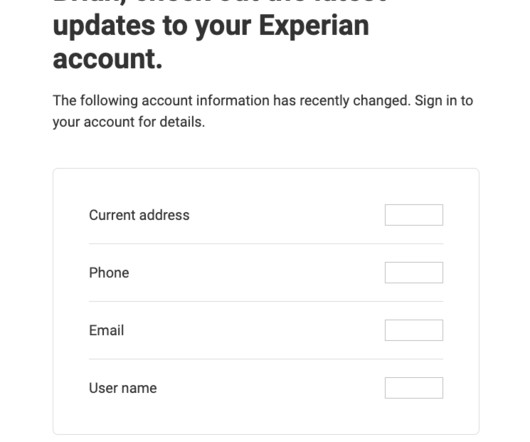Hacked Data Broker Accounts Fueled Phony COVID Loans, Unemployment Claims
Krebs on Security
AUGUST 6, 2020
A group of thieves thought to be responsible for collecting millions in fraudulent small business loans and unemployment insurance benefits from COVID-19 economic relief efforts gathered personal data on people and businesses they were impersonating by leveraging several compromised accounts at a little-known U.S. info and findget[.]me,















Let's personalize your content